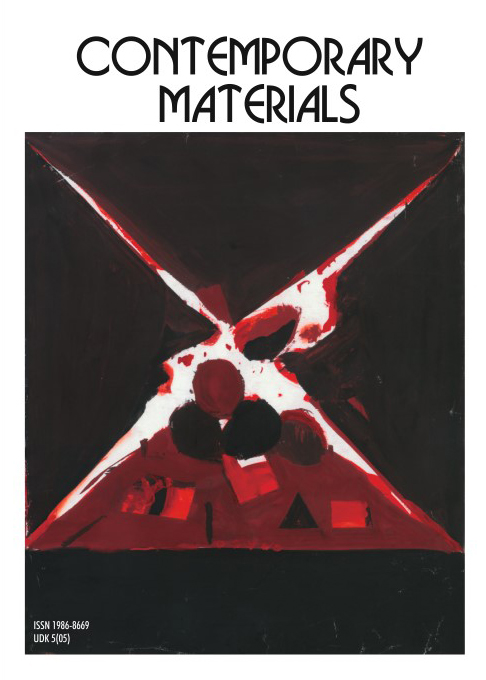CLINICAL EVALUATION OF THREE DIFFERENT SELF-ADHERING MATERIALS IN CLASS I RESTORATIONS
DOI:
https://doi.org/10.7251/COMEN2402184JAbstract
Introduction: Self-adhering flowable composite (Vertise Flow, Kerr, USA) simplified the long-lasting restorative procedure and opened a new chapter in conservative dentistry. This study aimed to evaluate the clinical effect of VF in comparison with resin-modified glass ionomer (Fuji II LC, GC, Japan) and glass carbomer (Glass Fill, GCP Dental, Vianen, Netherlands) in cavities of I class. Material and methods: Thirty patients with initial occlusal caries lesions were recruited in the study. For each patient, three restorations of I class were placed, one each with each examined material. All materials were applied according to the manufacturer’s instructions. The restoration was evaluated after one month and after 6 months using the modified United States Public Health Service criteria measuring (retention, postoperative sensitivity, color match, marginal adaptation, and marginal discoloration). For statistical analysis, Fisher’s test, Student’s test, Mann-Whitney, and Chi-square test were used to investigate changes in the follow-up periods. Results: After one month and after 6 months, there was no statistically significant difference between the three materials for all the parameters tested (p<0.05). Conclusion: VF showed a clinical effect similar to resin-modified glass ionomer (Fuji II LC, GC, Japan) and glass carbomer (Glass Fill, GCP Dental, Vianen, Netherlands) in cavities of I class after 6- months of follow-up.
